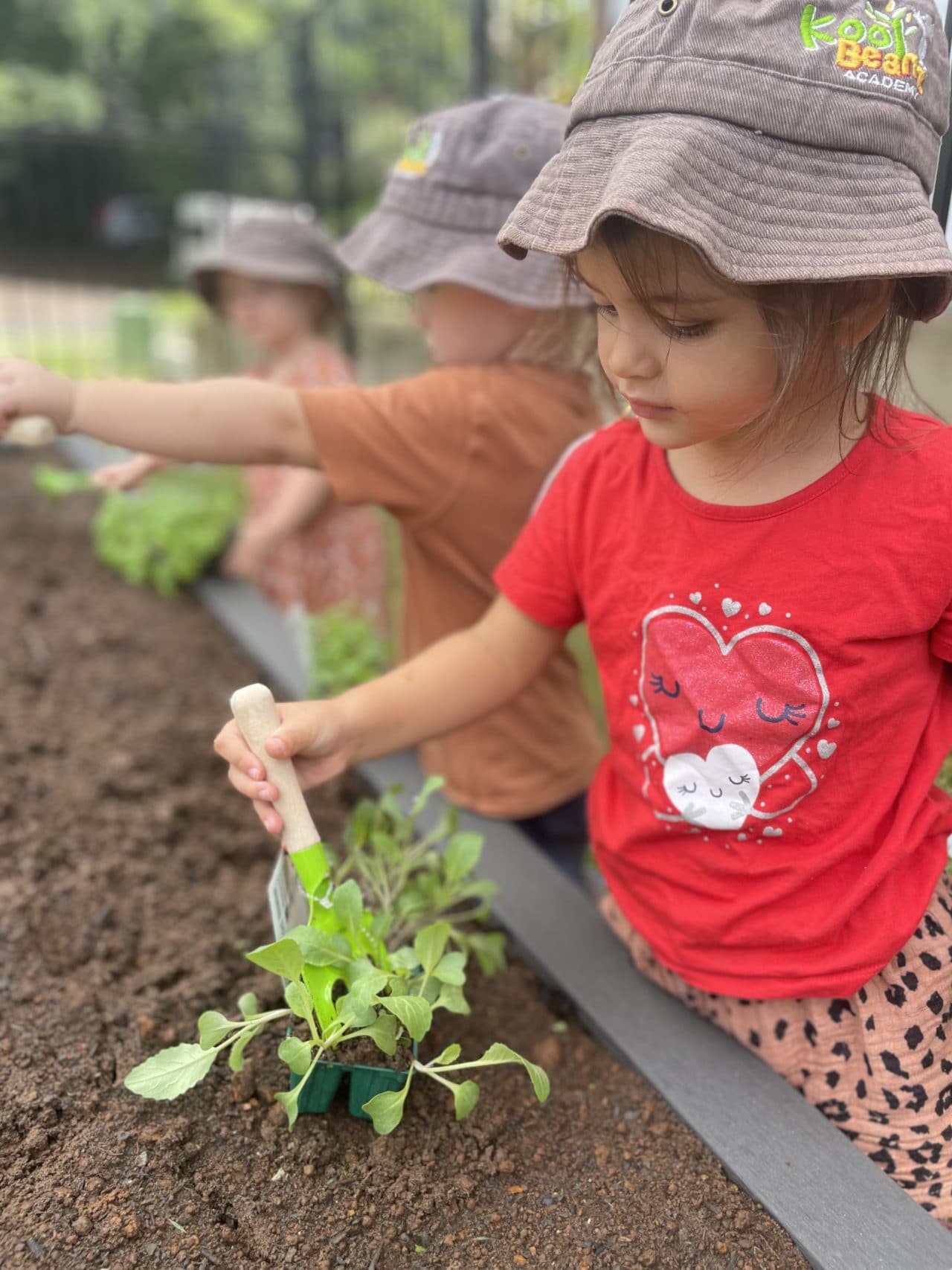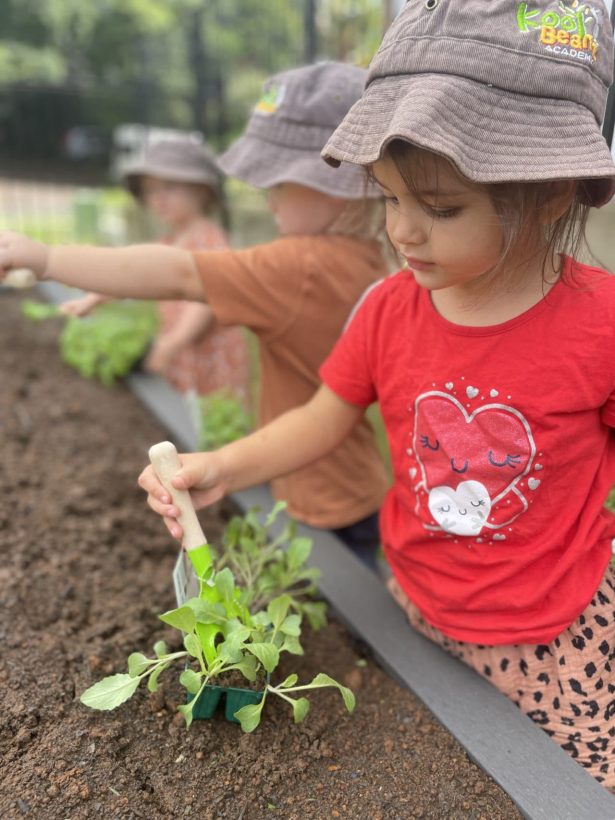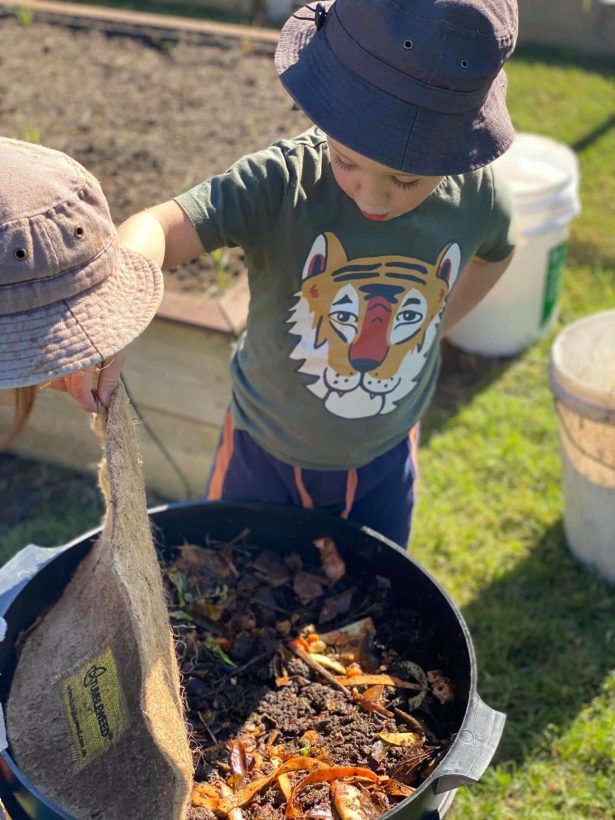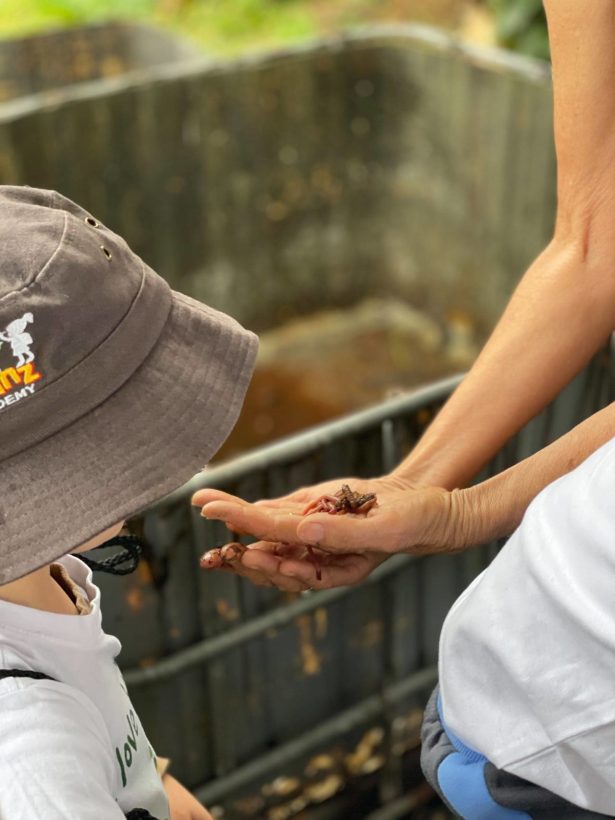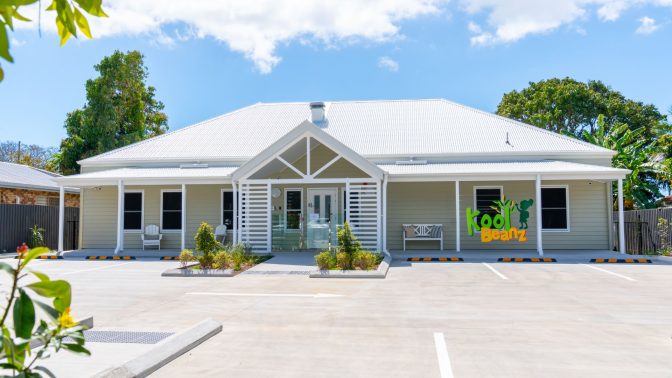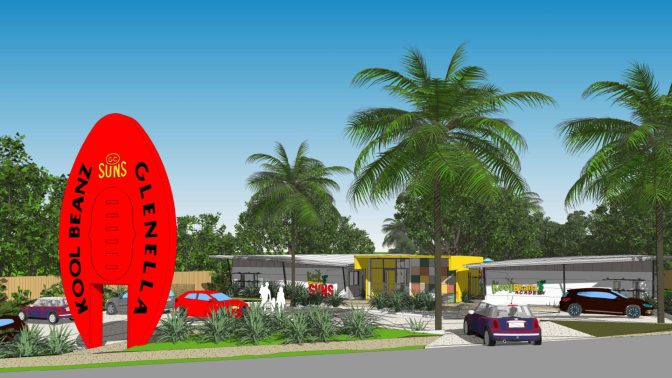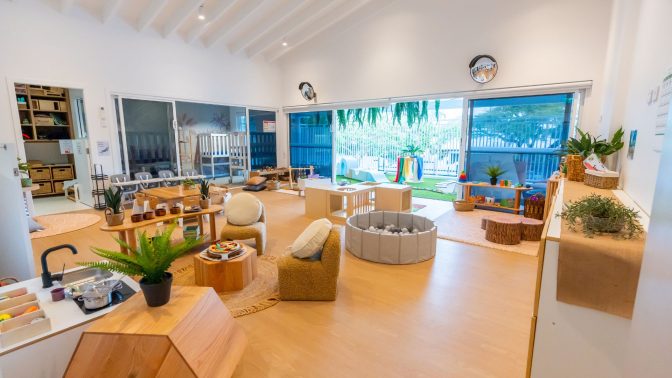Childcare Centre
Food Waste Reduction – Love Food Hate Waste
02 Nov 2023
Kool Beanz Academy has partnered with the Love Food Hate Waste project to record and reduce the amount of waste within our centres.
Kool Beanz Academy has partnered with the Love Food Hate Waste project to record and reduce the amount of waste within our centres. We understand the importance of reducing food waste to support a better more sustained environment as well as providing families with strategies for living well within this planet all while supporting the Australian National Food Waste Strategy which aims to reduce food waste by 50% by 2030.
For further information on our Waste Reduction Project at Kool Beanz or general centre information, please reach out to your local centre or enquire online.
Minimise Your Food Waste
Reviewing and minimising food waste provides the opportunity to critically reflect and genuinely engage with the communities of our centres as well as embed our revised practices into everyday routines.
This program looked at who is involved in minimising food waste within our centres from our Chefs’ who purchase and prepare our meals, our Educators who serve and assist the children, the children who consume the meals to families who share their child’s food experiences and needs.
Time To Reflect
In order to improve we needed to understand our current position with regards to waste. Over 2 days, we collected all food waste each day, including the kitchen preparation, children’s plates, and the waste of unserved uneaten food to be thrown out, as well as the staff room.
We measured the waste using a bucket indicating levels, i.e. quarter of a 2-litre bucket and ensured we were consistent across all classrooms taking measurements for the whole service each day. This audit gave us a baseline to work from and reflect on what we could be doing differently.
We recognised that there were several contributing factors that affect the daily waste. Was the chef not aware of children’s absences? Was it a new menu or new foods to the children? Was there additional waste in particular age groups, spillage with toddlers learning to feed themselves? Were the serving sizes excessive?
Our Food Waste Reduction Strategy
These reflections allowed us to come up with a strategy for change. Below is a list of solutions we will be implementing in order to minimise the amount of waste on a day to day basis across our Kool Beanz Academy Centres;
- Use smaller serving spoons for the younger groups
- By implementing this measure, children can still self-help and taste test all while minimising waste when trying new foods.
- Be more flexible and creative with our daily menu.
- Modifying our daily menu means we will utilise the excess we may find ourselves with one day and use it in another way where possible.
- To minimise food waste, we may be flexible and change the daily menu occasionally.
- Involving the children
- Ask our children to join us as we save food waste and work towards a healthier planet by incorporating their suggestions.
- Individual Children’s Eating Habits
- Encourage our families to inform us of children’s eating habits, which foods are well loved, and which are still new.
- Knowing a food will be new to children can help us plan smaller quantities of the new food and ensure we have adequate portions of well-loved nutritional food to support their recommended daily intake (RDI).
- Daily Attendance
- Encouraging chefs to check on attendances daily so the portions may be adjusted, allowing additional raw foods to be saved for future.
- Open communication in staff meetings
- Discussion of the menu and food waste issues in teams and brainstorm ideas.
- Assist staff with strategies to support children to try new foods, and support staff to develop their own nutritionally aware food knowledge.
Following the strategy, we put in place to improve on food waste across our centres, we again collated all our waste across a two-day period. We recorded that by implementing this strategy we reduced waste by an average of 27% across all our centres.
Key Learnings
- Large amounts of food waste is not necessarily a bad thing.
- The chef could be using more fresh fruit and vegetables and preparing more meals from scratch. There needs to be more information about avoidable and unavoidable food waste.
- Educators play a big role
- Something we previously overlooked was how big a role in how much uneaten food waste was left after since they are with the children as they eat. Their attitude and process with children’s mealtimes is hugely important to food waste amounts.
- Food waste needs to be looked at holistically within our centres.
- Food waste is a part of waste, recycling and composting. It is also a part of health, diet, and nutrition.
What Do We Do With Food Waste At Kool Beanz?
Each of our centres has a worm farm made from 100% UV Stabilised Recycled Plastic, recycling 3-4kg of kitchen waste every week. The worm farms are designed for teaching our little beanz how to recycle by being more inclusive allowing everyone to be hands-on and interactive.
Worm farms are an efficient way to reduce household waste and produce nutrient-rich fertiliser for the garden. Worms can consume and compact waste so well that they can reduce the volume of organic matter by 95%. The worms are full of countless beneficial bacteria and enzymes that help sustain the life and fertility of our horticultural and agricultural systems. Worms dig and aerate the soil, allowing more water to soak in.
For our centres with a vegetable garden, the worm tea is used to fertilise our herbs and vegetables. Encouraging families to create their own DIY home worm farm could also help children feel involved and included in their futures.
We provide our children with three meals a day, prepared and cooked by our onsite qualified chef in their fully resourced kitchen. Menus are developed to suit seasonal produce as well as vegetables and herbs grown by the children in our vegetable garden. For more information regarding nutrition at Kool Beanz, please click here.
Learning about the environment and how natural systems function is an integral part of our education program. Everything that we need for our survival and wellbeing relating directly to our natural environment is incorporated into our everyday learning activities.
For further information on our Waste Reduction Project at Kool Beanz, please reach out to your local centre or enquire online.

